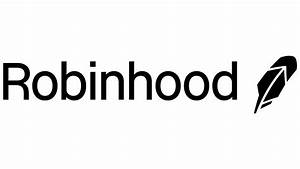Top 10 Investment Applications To Help You Manage Your Money
Managing your finances has never been easier with the rise of investment applications. There is a wide range of investment applications that can help you diversify your portfolio, manage your money, and even invest in cryptocurrency. We have compiled the top 10 investment applications to help you make better financial decisions.
1. Robinhood
Robinhood is a commission-free investing app that allows you to buy and sell stocks, ETFs, and cryptocurrency without paying any fees. It has a user-friendly interface, and it’s effortless to use, making it perfect for beginner investors. Robinhood also offers new users a free stock when they sign up.
2. Acorns
Acorns is a micro-investing app that allows you to invest your spare change. It rounds up your purchases to the nearest dollar and invests the difference. For example, if you buy a cup of coffee for $2.50, Acorns will round it up to $3.00 and invest the additional $0.50. Acorns charges $1 per month for accounts under $5,000 and 0.25% per year for accounts over $5,000.
3. Betterment
Betterment is a robo-advisor that manages your investments for as little as 0.25% per year. It uses algorithms to build and manage a diversified portfolio tailored to your financial goals and preferences.
4. Stash
Stash is an investment app that offers users the ability to buy fractional shares of more than 1,800 stocks and ETFs. It also offers retirement accounts and custodial accounts for minors. Stash charges $1 per month for accounts under $5,000 and 0.25% per year for accounts over $5,000.
5. Wealthfront
Wealthfront is a robo-advisor that offers investment management, financial planning, and banking services with no account minimums. It diversifies your portfolio across asset classes and uses tax-loss harvesting to optimize your returns. Wealthfront charges 0.25% per year for investment management.
6. Coinbase
Coinbase is a digital currency exchange that allows users to buy, sell, and trade cryptocurrency. It supports a wide range of cryptocurrencies, including Bitcoin, Ethereum, and Litecoin. Coinbase charges a fee of 1.49% for every transaction.
7. Personal Capital
Personal Capital is an investment app that offers a comprehensive view of your finances. It tracks your investments, accounts, and spending, allowing you to create a personalized financial plan. Personal Capital charges a fee of 0.89% for accounts up to $1 million.
8. TD Ameritrade
TD Ameritrade is a brokerage firm that offers a wide range of investment products and services, including stocks, ETFs, mutual funds, options, and futures. It has powerful trading tools and educational resources for beginner and advanced investors. TD Ameritrade charges $0 for stock and ETF trades.
9. E-Trade
E-Trade is a brokerage firm that offers a full range of investment products and services, including stocks, ETFs, mutual funds, options, and futures. It provides powerful trading tools and research resources, making it perfect for active traders. E-Trade charges $0 for stock and ETF trades.
10. M1 Finance
M1 Finance is a robo-advisor that allows users to create and manage their investment portfolio for free. It supports fractional shares and offers a wide range of ETFs and stocks to choose from. M1 Finance charges no fees for trading, managing, or using its platform.
The Bottom Line
Investment applications have revolutionized the way we invest and manage our money. They offer intuitive interfaces, low fees, and powerful tools that can help us make better financial decisions. Whether you are a beginner or an experienced investor, these 10 investment applications can help you achieve your financial goals.
Frequently Asked Question
1. What is an investment application?
An investment application is a software or mobile application that enables users to invest in various financial instruments, such as stocks, mutual funds, and bonds, among others.
2. How secure is using an investment application?
Most investment applications use advanced security protocols such as encryption, biometric authentication, and two-factor authentication to protect your personal and financial data.
3. Can I use an investment application to invest in international markets?
Yes, some investment applications allow you to invest in international stocks and securities.
4. What are the fees for using an investment application?
The fees for using an investment application vary depending on the provider. Some applications may charge a flat fee, while others may charge a percentage of the investment amount.
5. What types of investment accounts can I open through an investment application?
Most investment applications enable users to open various types of investment accounts, including taxable accounts, retirement accounts, and education savings accounts.
6. Do investment applications provide investment advice?
Some investment applications provide investment advice through robo-advisors or human advisors.
7. What is the minimum investment amount required to start using an investment application?
The minimum investment amount required to start using an investment application varies depending on the provider. Some applications have no minimum investment requirement, while others may require a minimum of $5,000 or more.
8. Can I transfer my existing investments to an investment application?
Yes, many investment applications allow you to transfer your existing investments from other accounts or brokers.
9. What are the benefits of using an investment application?
Some of the benefits of using an investment application include low fees, convenience, accessibility, and ease of use.
10. What are the risks of using an investment application?
The risks of using an investment application include market volatility, potential loss of principal, and operational risks such as system failures or cyber attacks. It is important to do your research and understand the risks before investing through an application.

